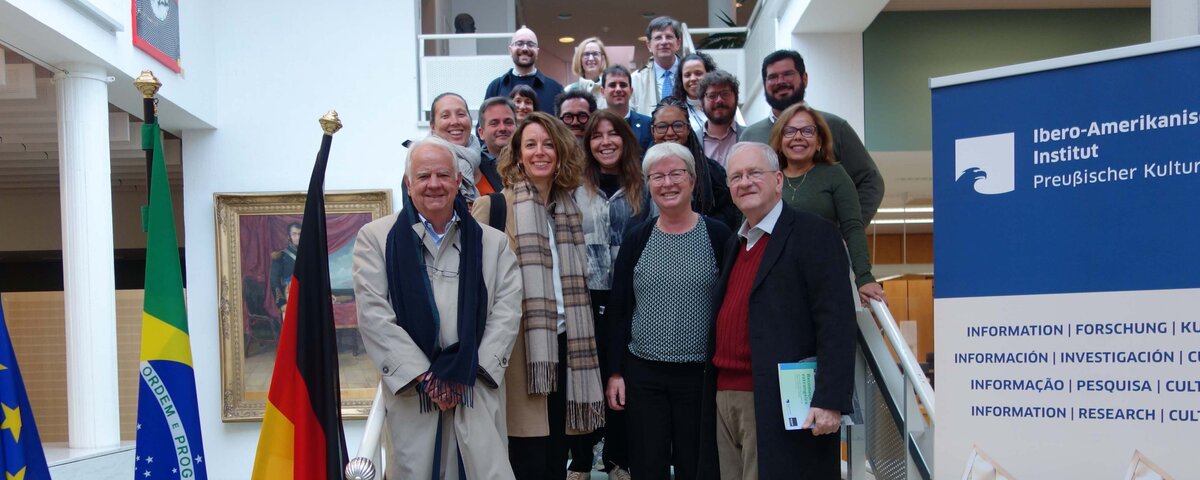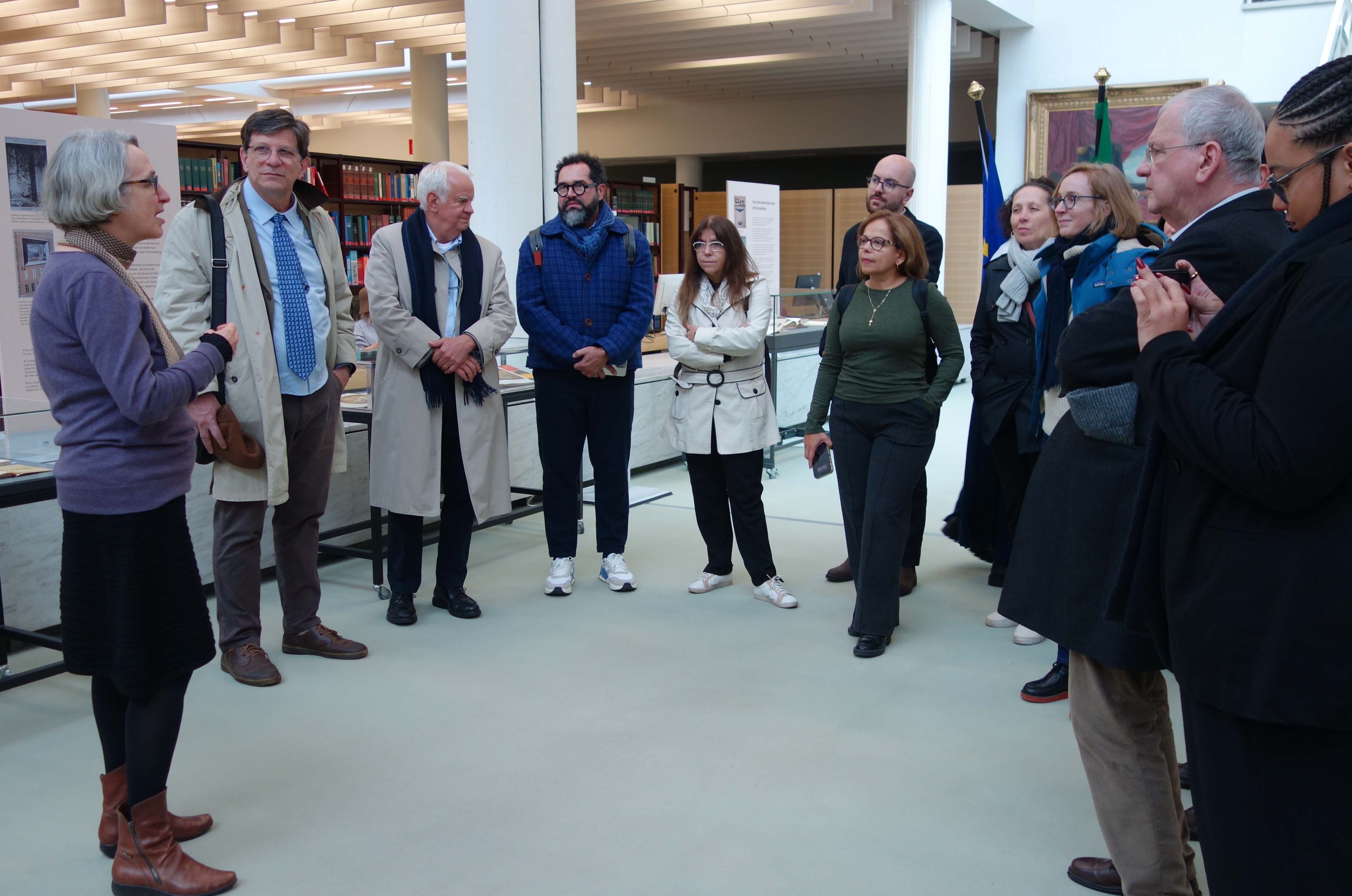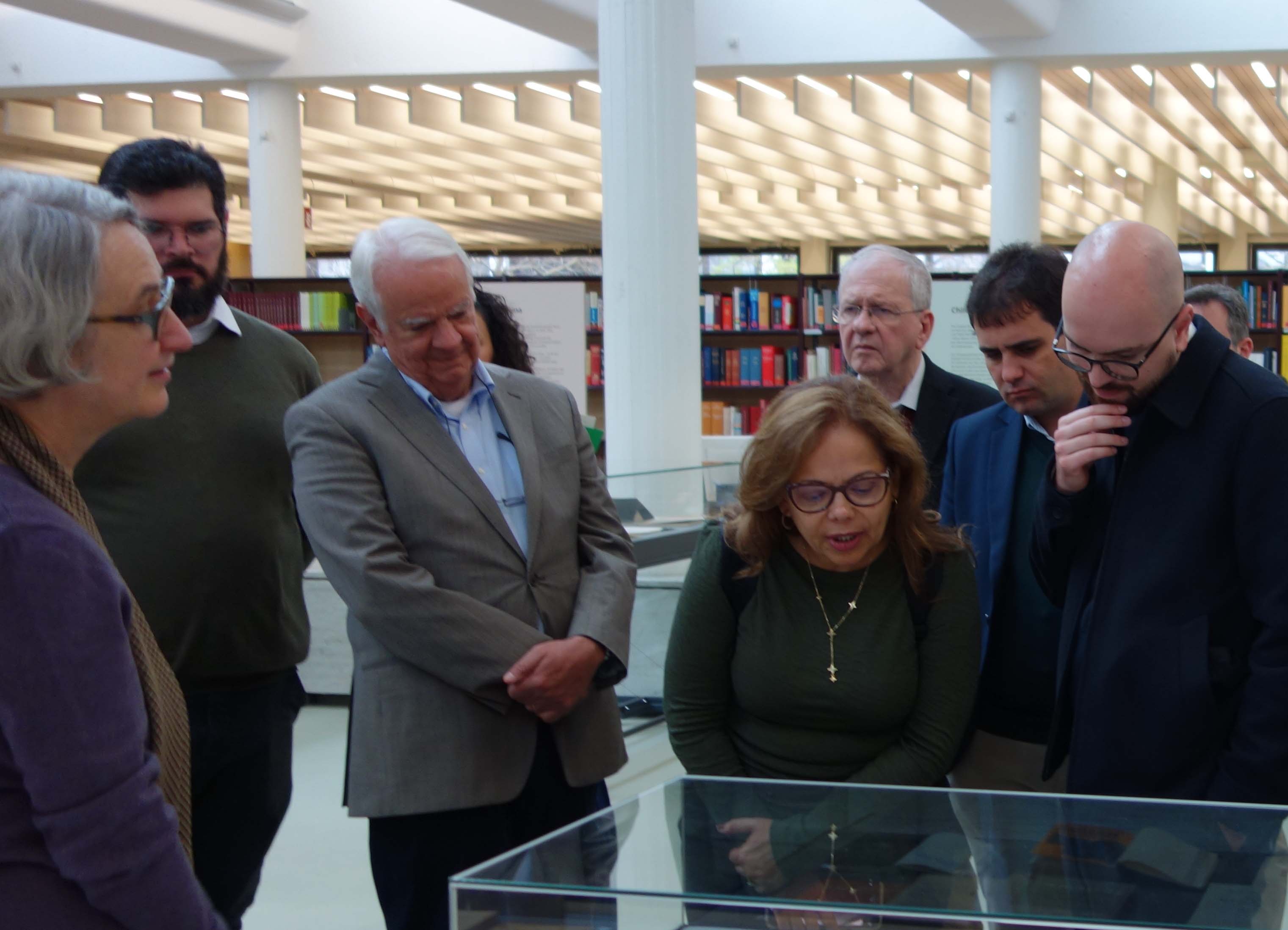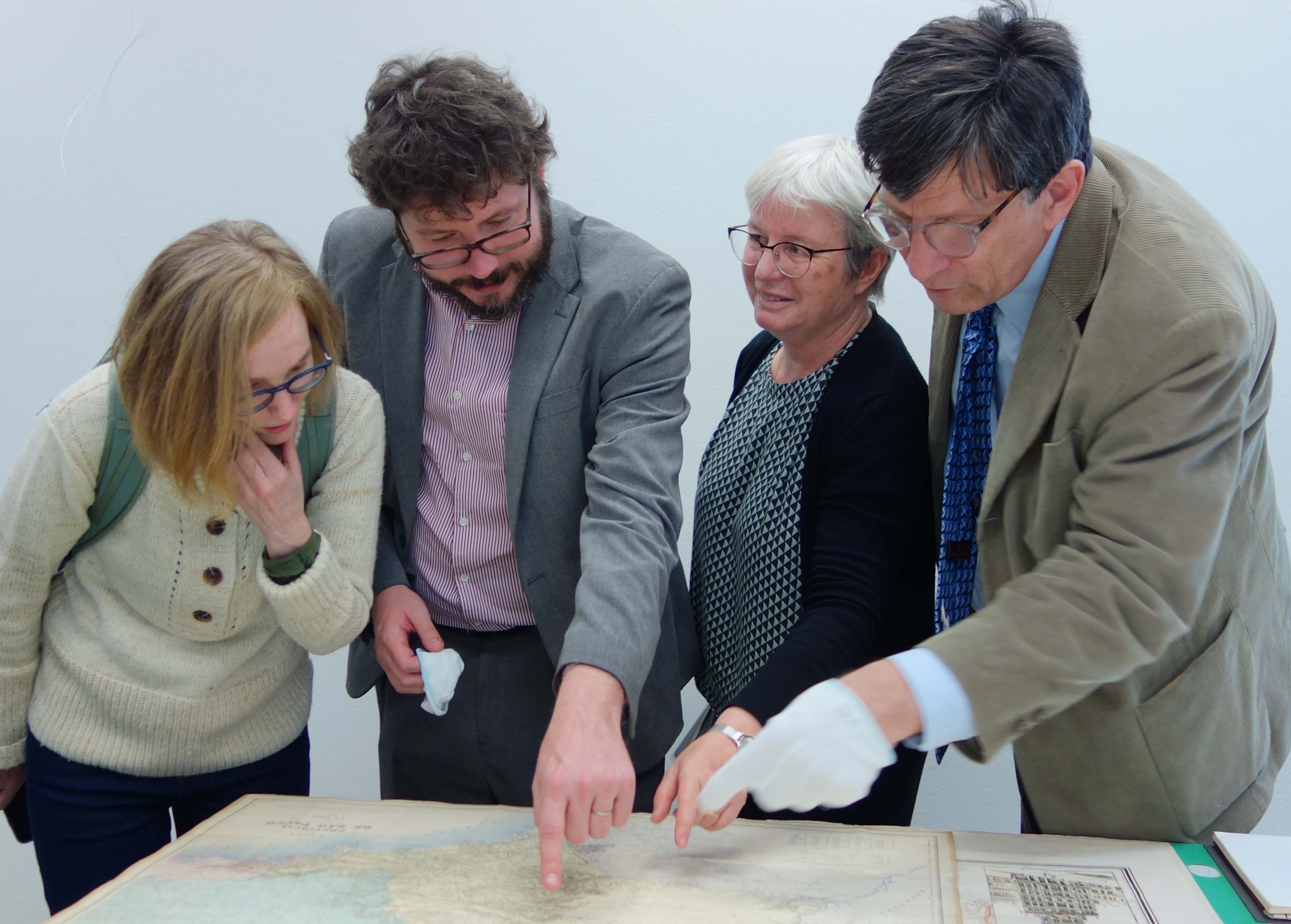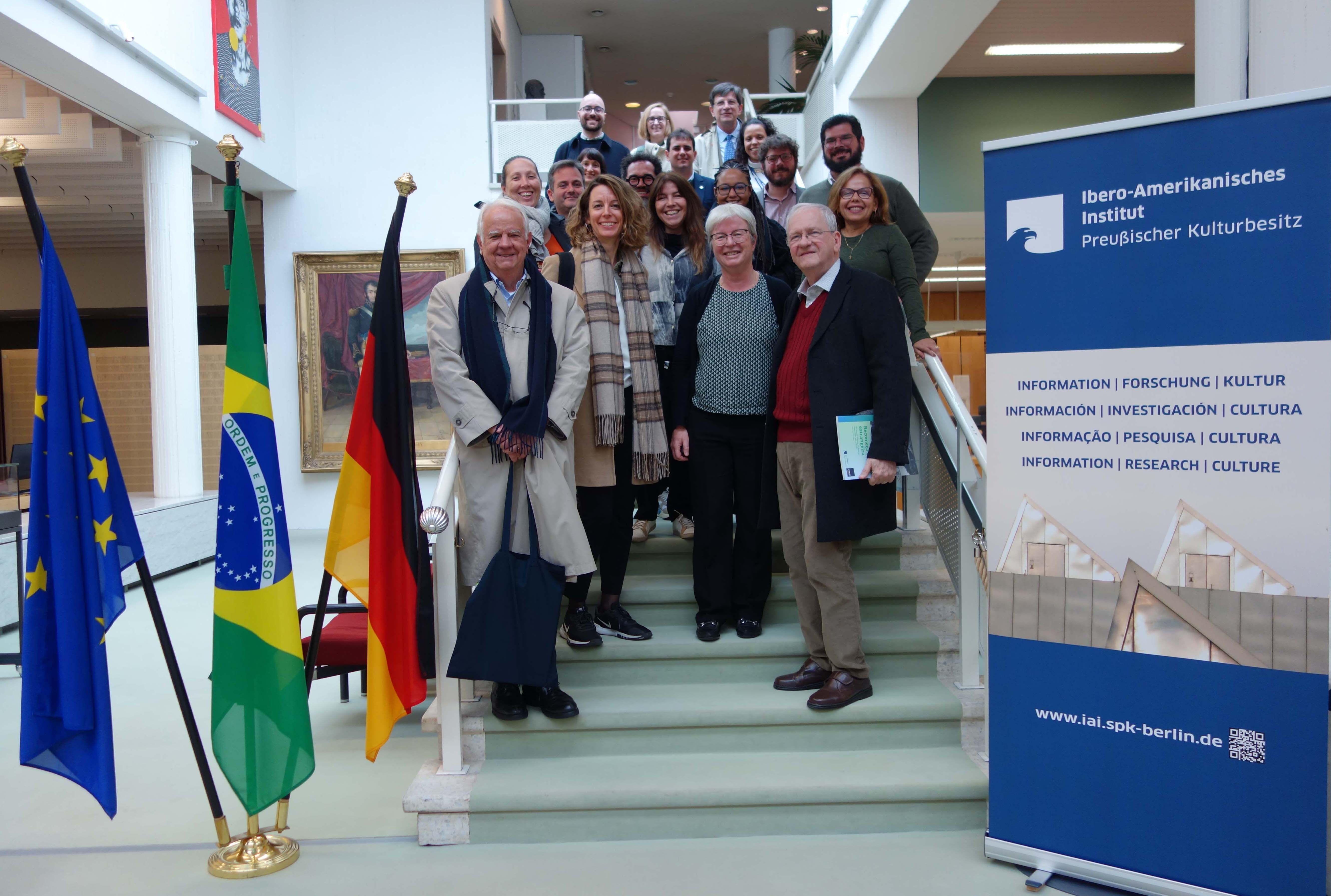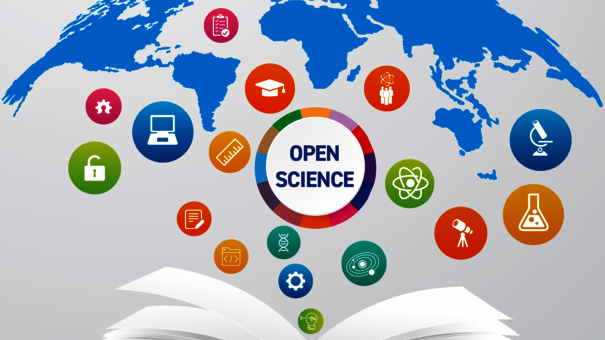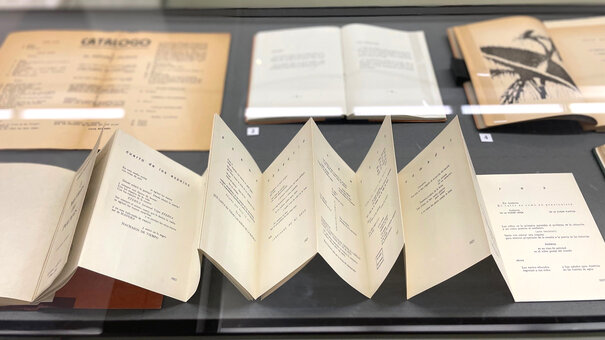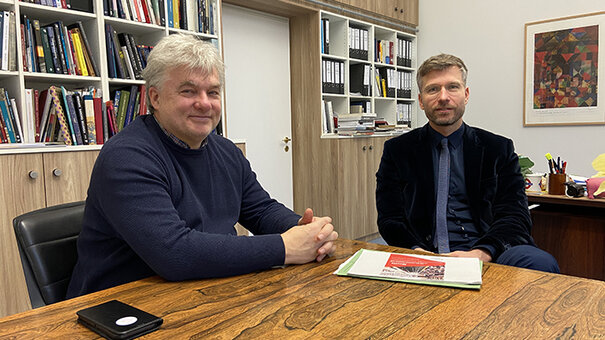FAPESP (Fundação de Amparo à Pesquisa do Estado de São Paulo), one of the most important organizations for scientific funding in Latin America, and the Deutsche Forschungsgemeinschaft (German Research Foundation DFG) jointly held an event in Berlin at the end of March 2025. The aim of FAPESP Week Germany was to make the dynamics of German-Brazilian cooperation in all areas of science visible, to identify further areas of overlap and to communicate new binational funding opportunities. Particularly in these times of multiple crises, the diverse and stable cooperation with Latin America in science and culture plays a strategic role. Barbara Göbel, director of IAI, coordinated the panel on social sciences at FAPESP Week together with Susana Carla Farias Pereira (Fundação Getulio Vargas FGV).
On March 27, 2025, a high-ranking FAPESP delegation visited the Ibero-American Institute. After an institute tour, Barbara Göbel presented the IAI's areas of work – collections, research, publications and events – with a particular focus on the role of Brazil. Of the 1.3 million books in the library, around 140,000 are from Brazil, 55,000 of which come from the state of São Paulo. 3,000 of the 44,121 e-books are from Brazil, with around 360 coming from São Paulo. Of the 91,523 journal titles, 9,604 are from Brazil and approximately 4,000 are from the state of São Paulo. These figures highlight the role of Brazil and the state of São Paulo in the production and circulation of knowledge in Latin America. The IAI's special collections also include unique image documents and sound recordings, important maps, exciting estates, interesting films, graphics, and posters related to this region. The delegation inspected a selection of these materials.
Of the 318 guest researchers who stayed at the IAI between 2020 and March 2025, 26 came from Brazil, 11 of them from universities in the state of São Paulo. The Maria Sibylla Merian Center Conviviality – Inequality in Latin America (Mecila), funded by Bundesministerium für Bildung und Forschung (Federal Ministry of Education and Research BMBF) headquartered in São Paulo (Universidade de São Paulo and Cebrap), is of great importance for scientific cooperation with Brazil. The IAI is particularly interested in the new FAPESP funding lines for indigenous researchers and the development of indigenous museums. There are also many points of contact with regard to open science strategies, as Germany can learn a lot from Latin American experiences in this area. FAPESP suggested stronger networking with the IAI's DAAD (Deutsche Forschungsgemeinschaft)-funded project to compare open science in the social sciences and humanities in Germany and Argentina.
